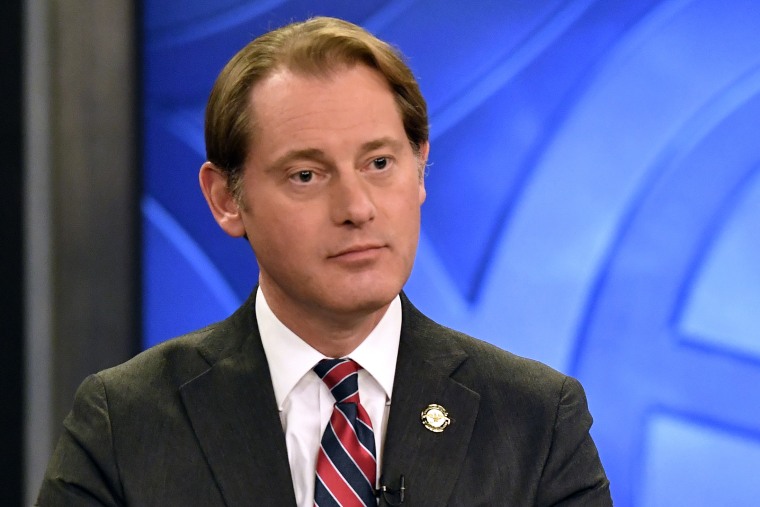Kentucky Secretary of State Michael Adams is, by any fair measure, a conservative Republican. But in last year’s statewide elections, the Bluegrass State’s top elections official nevertheless faced spirited primary rivals, not because he did his job poorly, but because he rejected right-wing election conspiracy theories.
In fact, Adams sat down with Semafor’s Dave Weigel last spring and was surprisingly candid on this point. “Misinformation is on the ballot — whether we’re going to be a fact- and rationality-based government, when it comes to elections, or whether we’re gonna let conspiracy theorists run the show,” he explained.
Adams ended up winning re-election, but this week, he sat down with The Washington Post to reflect on his experiences:
“I’ve been around politics a long time, but I hadn’t actually been in the position myself and it was quite a transition to go from just a regular, almost anonymous kind of guy ... and then suddenly just months later, I’m a flash point for very emotional people. ... It was quite a transition for me to go from being a total nobody to suddenly there’s people with machine guns outside my office.”
Adams went on to explain in the interview that he’s faced a variety of confrontations with election deniers, as have members of his family. (His wife and daughter removed bumper stickers from his campaign in order to avoid pushback from angry conspiracy theorists.)
Two weeks before Adams’ re-election, Republican Rep. Jim Jordan was trying to shore up support for his bid to become House speaker — with Trump's blessing — and the Ohioan's GOP detractors faced death threats from right-wing extremists.
It was against this backdrop that The New York Times’ Jamelle Bouie explained in a column last week, “To be a Republican politician in the age of Donald Trump is to live under the threat of violence from his most fanatical and aggressive followers.”
After noting GOP members of Congress who’ve had to invest in security measures after drawing Trump’s ire — Sen. Mitt Romney paid $5,000 a day to cover private security for his family — Jamelle added:
It’s not only Republicans in Congress, either. Republican lawmakers and election officials in critical swing states like Georgia, Arizona and Wisconsin have received threats on their lives for following the law and rejecting Trump’s demands to find or throw out votes in the last presidential election. And there have been more recent threats as well, leveled against those officials in the political, legal and criminal justice system who have tried to hold Trump accountable for his actions.
Fortunately, these threats haven’t yet led to bloodshed. But in this environment, it’s difficult to wonder how many Republican officials at multiple levels of government decide to either exit the stage — clearing the way for someone more reactionary to take their place — or that they’re better off ignoring their principles and responsibilities, and just going along with what Trump and his extremist followers want.
It’s these questions that likely help fuel the threats in the first place.
Jamelle’s column added, “Trump can try, whether he is the nominee or not, to use the fervor of his followers and acolytes to tilt the playing field in his direction. He can use the threat of violence to make officials and ordinary election workers think twice about their decisions. And he can use the example of those Republicans who have crossed him as a warning to wavering lawmakers — to anyone who resists the force of his will.”
It doesn’t have to be this way, though the more GOP officials put their heads down, quiet their consciences, and endorse their party’s likely nominee, the more the underlying dynamic becomes the new normal in Republican politics.

